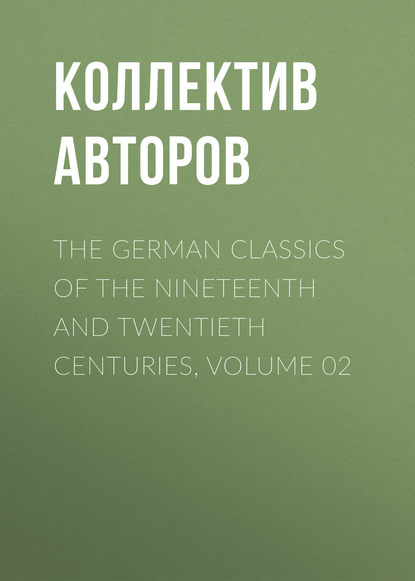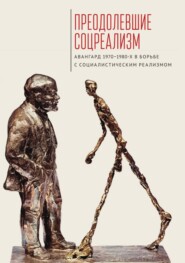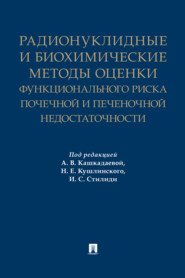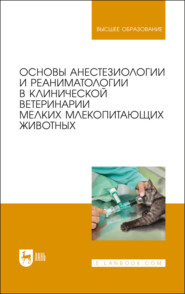По всем вопросам обращайтесь на: info@litportal.ru
(©) 2003-2024.
✖
The German Classics of the Nineteenth and Twentieth Centuries, Volume 02
Настройки чтения
Размер шрифта
Высота строк
Поля
Of the deed or the misdeed itself, I know of nothing to say. When the toedium vitoe lays hold on a man, he is to be pitied, not to be blamed. That all the symptoms of this strange, natural, as well as unnatural, disease have raged within me—of that Werther leaves no one in doubt. I know right well what amount of resolution and effort it cost me then to escape from the waves of death, with what difficulty I saved myself from many a later shipwreck, and how hard it was for me to recover. And all the stories of mariners and fishermen are the same. After the night of storm the shore is reached again; he who was wet through dries himself, and the next morning when the beautiful sun shines once more on the sparkling waves "the sea has regained its appetite for new victims."
When we see not only that the world in general, and especially the younger generation, are given over to their lusts and passions, but also that what is best and highest in them is misplaced and distorted through the serious follies of the age; when we see that what should lead them to salvation really contributes to their damnation—to say nothing of the unspeakable stress brought to bear upon them from without—then we cease to wonder at the misdeeds which a man performs in rage against himself and others. I believe I am capable of writing another Werther, which would make people's hair stand on end, even more than the first did. Let me add one remark. Most young people, who feel themselves possessed of merit, demand of themselves more than is right. They are, however, pressed and forced into it by their gigantic surroundings. I know half a dozen of that kind who will certainly perish, and whom it would be impossible to help, even if one could make clear to them where their real advantage lies. Nobody realizes that reason, courage, and will-power are given to us so that we shall refrain, not only from evil, but from excess of goodness.
I thank you for your comments on the pages of my autobiography. I had already heard much that was good and kind about them in a general way. You are the first and only one who has gone into the heart of the matter.
I am glad that the description of my father impressed you favorably. I will not deny that I am heartily tired of the German bourgeois, these Lorenz Starks, or whatever they may be called, who, in humorous gloom, give free play to their pedantic temperament, and by standing dubiously in the way of their good-natured desires, destroy them, as well as the happiness of other people. In the two following volumes the figure of my father is completely developed, and if on his side as well as on the side of his son, a grain of mutual understanding had entered into this precious family relationship, both would have been spared much. But it was not to be; and indeed such is life. The best laid plan for a journey is upset by the stupidest kind of accident, and a man goes farthest when he does not know where he is going.
Do have the goodness to continue your comments; for I go slowly, as the subject demands, and keep much in petto (on which account many readers grow impatient who would be quite satisfied to have the whole meal from beginning to end, well braised and roasted, served up at one sitting, so that they could the sooner swallow it, and on the morrow seek better or worse cheer at random, in a different eating-house or cook's-shop). But I, as I have already said, remain in ambush, in order to let my lancers and troopers rush forward at the right moment. It is, therefore, very interesting for me to learn what you, as an experienced Field-Marshal, have already noticed about the vanguard. I have as yet read no criticisms of this little work; I will read them all at once after the next two volumes are printed. For many years I have observed that those who should and would speak of me in public, be their intentions good or bad, seem to find themselves in a painful position, and I have hardly ever come face to face with a critic who did not sooner or later show the famous countenance of Vespasian, and a faciem duram.
If you could sometime give me a pleasant surprise by sending the Rinaldo, I should consider it a great favor.
It is only through you that I can keep in touch with music. We are really living here absolutely songless and soundless. The opera, with its old standbys, and its novelties dressed up to suit a little theatre, and produced at pretty long intervals, is no consolation. At the same time I am glad that the court and the city can delude themselves into thinking that they have a species of enjoyment handy. The inhabitant of a large city is to be accounted happy in this respect, because so much that is of importance in other lands is attracted thither.
You have made a point-blank shot at Alfieri. He is more remarkable than enjoyable. His works are explained by his life. He torments his readers and listeners, just as he torments himself as an author. He had the true nature of a count and was therefore blindly aristocratic. He hated tyranny, because he was aware of a tyrannical vein in himself, and fate had meted out to him a fitting tribulation, when it punished him, moderately enough, at the hands of the Sansculottes. The essential patrician and courtly nature of the man comes at last very laughably into evidence, when he can think of no better way to reward himself for his services than by having an order of knighthood manufactured for himself. Could he have showed more plainly how ingrained these formalities were in his nature? In the same way I must agree to what you say of Rousseau's Pygmalion. This production certainly belongs among the monstrosities, and is most remarkable as a symptom of the chief malady of that period, when State and custom, art and talent were destined to be stirred into a porridge with a nameless substance—which was, however, called nature—yes, when they were indeed thus stirred and beaten up together. I hope that my next volume will bring this operation to light; for was not I, too, attacked by this epidemic, and was it not beneficently responsible for the development of my being, which I cannot now picture to myself as growing in any other fashion?
Now I must answer your question about the first Walpurgis-night. The state of the case is as follows: Among historians there are some, and they are men to whom one cannot refuse one's esteem, who try to find a foundation in reality for every fable, every tradition, let it be as fantastic and absurd as it will, and, inside the envelope of the fairy-tale, believe they can always find a kernel of fact.
We owe much that is good to this method of treatment. For in order to go into the matter great knowledge is required; yes, intelligence, wit, and imagination are necessary to turn poetry into prose in this way. So now, in this case, one of our German antiquarians has tried to vindicate the ride of the witches and devils in the Hartz mountains, which has been well known to us in Germany for untold ages, and to place it upon a firm foundation, by the discovery of an historical origin. Which is, namely, that the German heathen priests and forefathers, after they had been driven from their sacred groves, and Christianity had been forced upon the people, betook themselves with their faithful followers, at the beginning of Spring, to the wild inaccessible mountains of the Hartz; and there, according to their old custom, they offered prayers and fire to the incorporeal God of Heaven and earth. In order to secure themselves against the spying, armed converters, they hit upon the idea of masking a number of their party, so as to keep their superstitious opponents at a distance, and thus, protected by caricatures of devils, to finish in peace the pure worship of God.
I found this explanation somewhere, but cannot put my finger on the author; the idea pleased me and I have turned this fabulous history into a poetical fable again.
* * * * *
LETTER 433
Weimar, October 30, 1824.
It had long been my wish that you might be invited to take a trip, because I was certain that I should then hear something from you; for, of course, I am convinced that in over-lively Berlin no one is likely to remember to write letters to those who are far away. Now a perilous and hazardous journey gives my worthy friend an opportunity for a very characteristic and pleasing description; a crowded family party furnishes material for a sketch that would certainly find a place in any English novel. For my part, I will reply with a couple of matters from my quiet sphere.
In the first place, then, my sojourn at home has this time been quite successful; yet we must not boast of it, only quietly and modestly continue our activities.
Langermann has probably communicated to you what I sent him. The introductory poem to Werther I lately resurrected and read to myself, quietly and thoughtfully, and immediately afterward the Elegie which harmonizes with it very well; only I missed in them the direct effect of your pleasing melody, although it gradually revived and rose out of my inner consciousness.
I am now also concluding the instalment on natural science, which was inconveniently delayed this year, and am editing my Correspondence with Schiller from 1794 to 1805. A great boon will be offered to the Germans, yes, I might even say to humanity in general, revealing the intimacy between two friends, of the kind who keep contributing to each other's development in the very act of pouring out their hearts to each other. I have a strange feeling at my task, for I am learning what I once was. However, it is most instructive of all to see how two people who mutually further their purposes par force, fritter away their time through inner over-activity and outer excitement and disturbance; so that there is, after all, no result fully worthy of their capacities, tendencies, aims. The effect will be extremely edifying; for every thoughtful man will be able to find in it consolation for himself.
Moreover, it contributes to various other things which are revived by the excited life of that period. If what you recognized a year ago as the cause of my illness now proves itself the apparent element of my good health, everything will be running smoothly and you will hear pleasant news from time to time.
In order that I may, however, hear from you soon, I wish to inform you that it would give me especial pleasure to receive a concise, forceful description of the Konigstadter theatricals. From what they are playing and rehearsing and from the notices and criticisms that reach me in the newspapers, I can form some notion for myself, to be sure; but, in any case, you will correct and strengthen my ideas. At your suggestion the architect sent me a plan which I found very acceptable, because, from it I can see for myself that the theatre is situated in a large residential section. This probably makes it very nice and cheerful, just as setting back the various rows of boxes is a very convenient arrangement for the audience who wish to be seen while they themselves see. This much I already know, and you, with a few strokes, will assist me to picture the most vivid actuality.
J. A. Stumpff, of London, Harp Maker to his Majesty, is just leaving me. A native of Ruhl, he was sent at an early age to England, where he is now working as an able mechanic, a sturdy man of good stature in which you would take delight; at the same time he manifests the most patriotic sentiments for our language and literature. Through Schiller and myself he has been awakened to all that is good, and he is highly pleased to see our literary products become gradually known and appreciated. He revealed a remarkable personality.
Our sonorous bells are just announcing the celebration of the anniversary of the Reformation. It resounds with a ring that must not leave us indifferent. Keep us, Lord, in Thy word, and guide.
notes
1
Morgenblatt 1815. Nr. 113 12. Mai.
2
(King Henry IV, Part II, Act 4, Scene 4.)
3
The works referred to are the nine volumes of A. W. Schlegel's translation, which appeared 1797-1810, and were subsequently (since 1826) supplemented by the missing dramas, translated under Tieck's direction.
4
Delivered before the Amalia Lodge of Freemasons in Weimar, February 1813.
5
Permission The Macmillan Co., New York.
6
Permission The Macmillan Co., New York, and G. Bell & Sons, London.
7
It is almost needless to observe that the word "demon" is her reference to its Greek origin, and implies nothing evil.—Trans.
8
This is the first day in Eckermann's first book, and the first time in which he speaks in this book, as distinguished from Soret.—Trans.
9
The word "Gelegenheitsgedicht" (occasional poem) properly applies to poems written for special occasions, such as birthdays, weddings, etc., but Goethe here extends the meaning, as he himself explains. As the English word "occasional" often implies no more than "occurrence now and then," the phrase "occasional poem" is not very happy, and is only used for want of a better. The reader must conceive the word in the limited sense, produced on some special event.—Trans.
10
Goethe's "West-östliche (west-eastern) Divan," one of the twelve divisions of which is entitled "Das Buch des Unmuths" (The Book of Ill-Humor).—Trans.
11
Die Aufgeregten (the Agitated, in a political sense) is an unfinished drama by Goethe.—Trans.
12
The German phrase "Freund des Bestehenden," which, for want of a better expression, has been rendered above "friend of the powers that be," literally means "friend of the permanent," and was used by the detractors of Goethe to denote the "enemy of the progressive."—Trans.
13
Poetry and Truth, the title of Goethe's autobiography.—Trans.
14

















